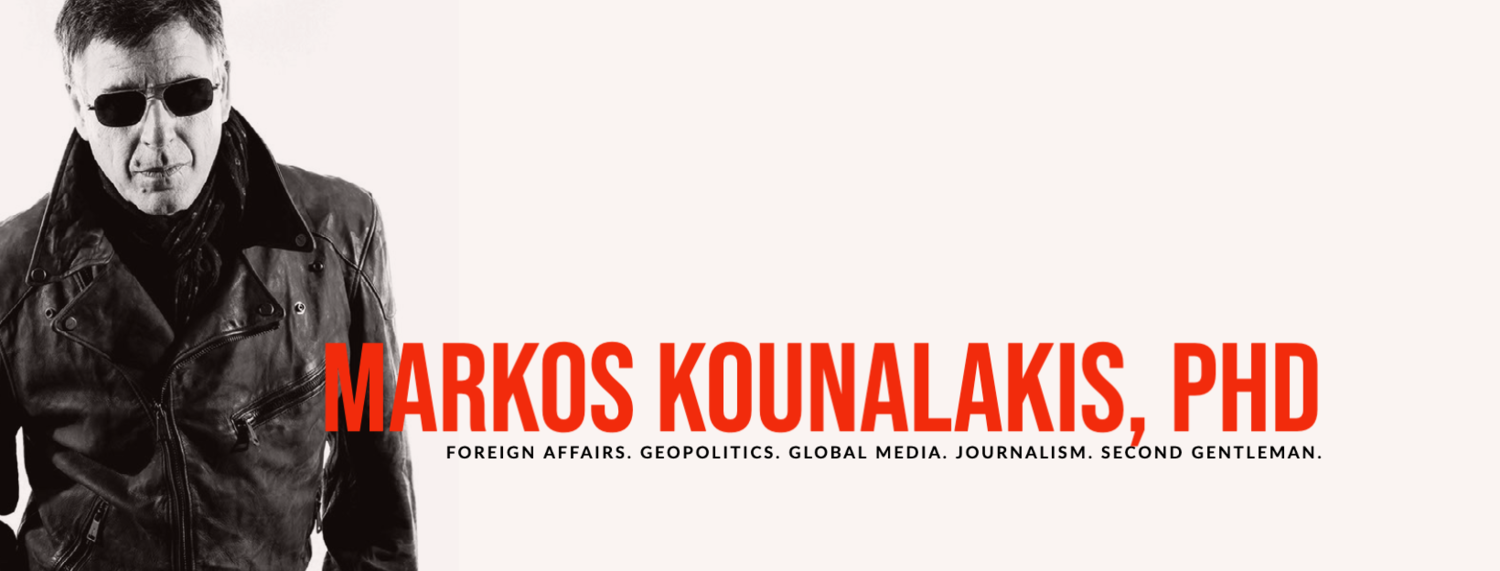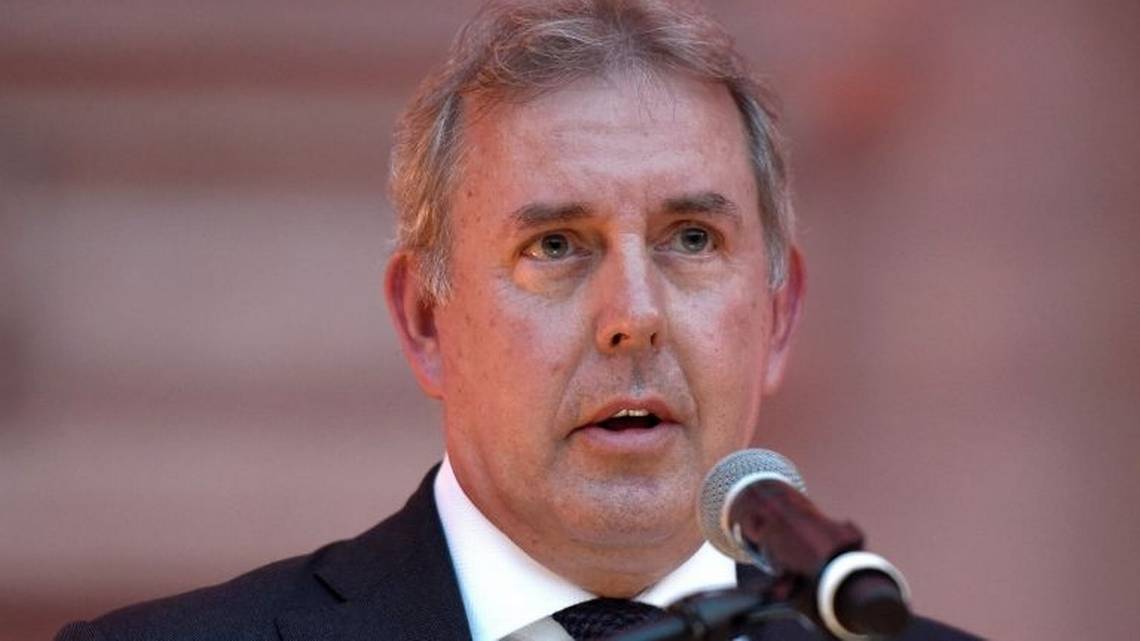The U.S. Should Recognize Belarus’s Government in Exile
Vladimir Putin’s brutal war on Ukraine continues in the nation’s eastern Donbas region, threatening to spread south and west through Moldova into the pro-Russian breakaway state of Transnistria. Moscow’s forces are consolidating their military efforts along the Black Sea, with no credible peace talks on the horizon.
Amid this slog, Kyiv’s friends can do more than supply arms, intelligence, and prayers. America and her allies should open an aggressive diplomatic front on Russia’s isolated flank by recognizing a Belarus government in exile led by the dissident Svetlana Tikhanovskaya.
Challenging the legitimacy of Moscow’s client in Minsk will not only undermine the legitimacy of Russian troops occupying Belarus but will also buoy opponents of Putin’s ally, Alexander Lukashenko, who has allowed his nation to be drawn into the war on Ukraine. READ MORE
Kamala Harris’ cultural background will make her a player on the global stage
California is waiting to be welcomed back into the national conversation after four years of disrespect and neglect from the White House. In a Joe Biden-Kamala Harris administration, not only will California’s favorite daughter bridge the widened — and widening — federal-state divide, she will team with a President Biden to rebuild America’s powerful role in the world.
In fact, Harris could be key to building new strategic global relationships and alliances. (Disclosure: My wife and I are Harris’ longtime friends.) While Biden shores up NATO, reaffirms multilateral agreements and Zoom calls his close foreign-leader friends, Harris will also bring unique foreign-policy advantage to the table. READ MORE
In Hungary, coronavirus crisis is the perfect time to throw democracy under the bus
In the 1949 film “The Third Man,” set in post-war Vienna, the Austrian capital is a bombed-out city where Orson Welles’ character, Harry Lime, makes a killing on the black market for medical supplies. Lime steals military stocks of penicillin, dilutes the antibiotic and sells it to unsuspecting patients who die from the watered-down drug.
Profiting in desperate times is immoral and unjustifiable.
It is also common.
While most people are conscientious, showing strangers compassion, love and selflessness, craven examples abound of certain individuals profiting from the COVID-19 crisis, and others, by hoarding, price gouging or simply leveraging market forces. The $138 bottle of hand sanitizer is the poster child product of this lockdown moment.
Money motivates the unscrupulous and greedy. Power is the other potent aphrodisiac. In its pursuit, power hungry leaders fan the flames of popular fears and exploit nativist anger.
Money and power are a killer combo.
Across the world, from Ankara to Beijing, Caracas to Moscow, powerful (and newly rich) leaders see the current crisis as a way to build themselves an unassailable permanent political role. Case in point? Hungary’s Prime Minister Viktor Orbán now rules by decree. READ MORE
Trump has robust, sensible foreign policy goals. But he doesn’t have any follow-through
Donald Trump’s successful 2016 road to the White House was paved with irreverent campaign rhetoric and a world of good intentions regarding American foreign policy. Like Barack Obama before him, he called the Iraq War a mistake and recognized China as a rising global competitor. Where Trump differs with his predecessor on foreign-policy goals is mostly reflected in an approach toward personnel and a highly personal style that forswears process and favors disruption.
The president’s critics should realize, however, that when it comes to both Trump’s instincts and intentions, his desired foreign-policy outcomes are mostly aligned with those of past presidents and in sync with longstanding American goals. READ MORE
As the British envoy just learned, loose lips sink diplomats
If the truth can set you free, then the British ambassador to Washington is now free as a bird. Unfortunately for him, he will no longer be soaring over America’s capital or hovering anywhere near the White House. In fact, the president made sure this British goose got cooked.
Discretion is a key component of diplomacy, and Ambassador Kim Darroch was publicly discreet to a fault. But his private, privileged and personal observations — reserved for his ministry and his masters — now seem indiscreet because they were publicly leaked. Darroch this week resigned his Washington posting.
From Wikileaks to these recent diplo-leaks, timed and targeted news bombshells are blowing up traditional diplomatic relationships as well as politics as usual. Add indiscretion, incendiary responses, hyperventilating social media and a dash of bravado, and you have the makings of a massive diplomatic disruption between allies who for years have enjoyed a “special relationship.” It is not pretty. READ MORE
Trump has traded American values, interests and dignity for the false promise of Putin’s friendship
Donald Trump is likely to go down as the president who lost Russia. Not for lack of trying to make good with Moscow. In fact, it is because he has tried so hard to make it right and to pursue a personal and respectful relationship with Vladimir Putin that his ability to make any meaningful deals with Russia is doomed.
The result is an American foreign policy that is stuck with a confrontational posture and caught in a tit-for-tat policy trap preventing the pursuit of real U.S. interests with Russia. The reason is an underlying popular belief that President Trump has been incapable, at best, and, at worst, actively curried personal and political favor from Moscow over the years — regardless of what the Mueller report says or how it is interpreted.
From his 2016 campaign fumbles to his presidential summit stumbles, Trump has made an unending string of unforced errors that have caused Americans to question his motivations. That perception and reality actively limit his latitude for dealing with Russia. READ MORE
Trump’s awful phone diplomacy boosts Russian meddling in Mexico vote
Phone calls are not President Trump’s best tool for international charm offensives. He hung up on Australia’s prime minister a year ago, nearly changed U.S. policy toward Taiwan and China in another conversation when he was president-elect, and, this week, further offended Mexico’s President Enrique Peña Nieto.
The end result of the Feb. 20 call is that Peña Nieto canceled, for a second time, a planned White House visit. It may also have locked in a win for a far-left presidential candidate in the July 1 Mexican national election — an election in which the Russians are working overtime to actively disrupt and influence.
In this photo taken Jan. 28, 2017, President Donald Trump speaks on the phone with Australian Prime Minister Malcolm Turnbull in the Oval Office of the White House in Washington. Transcripts of President Donald Trump’s conversations with the leaders of Mexico and Australia in January offer new details on how the president parried with the leaders over the politics of the border wall and refugee policy, with random asides on subjects including drug abuse in New Hampshire. Alex Brandon AP
The president’s poor phone etiquette further jeopardizes the already slow progress in the NAFTA renegotiation, adds a new strain to diplomatic relations with a border neighbor, hinders cooperation in combating drug trafficking and makes immigration issues even touchier. And with every notching up of tension with Mexico, the Trump border wall becomes an even harder sell in the nation he insists must underwrite it. READ MORE







